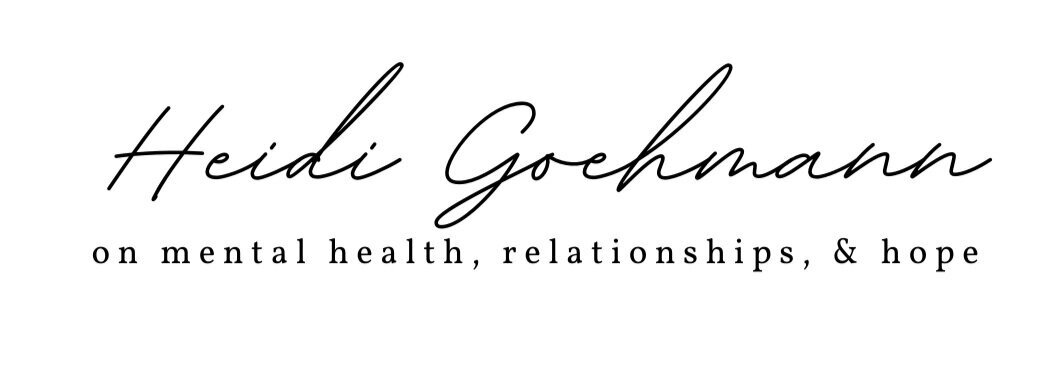Connections: Shame, Autonomy, and Cognitive Growth
We all think differently, it’s true.
We all have opinions and a set series of experiences that we bring with us into a conversation.
Perhaps one of the ways we can change the current polarized narrative is by understanding a little more closely how we get to thinking how we think?
How did God build our brains to hold certain information, while other information flies right out the window, or the nostril, or the ear canal, as it were?
How does shame well up inside of us when we don’t understand something or can’t communicate what we’re trying to help someone else learn?
And finally, how does God work in our brains and in our hearts to bring His safety and grace into our conversations by way of relationship and senses that remind us we are connected to Him and to one another?
In this month’s episode of Mental Health Monday episode on the Heidi Goehmann Writes YouTube Channel, we’re talking specifically about the connections between shame, autonomy, and our cognitive development.
Special guest, Dr. Kim Marxhausen, points us to concepts like equilibrium and disequilibrium to help us understand better how to enter into the discomfort of dialogue as we learn and grow with one another each day. She also brings to us five ways our brain tags information as important, so we can get closer to retaining what we’d like to retain or transmitting to our children what we’d like to transmit instead of expending so much energy on what we don’t value.
Catch up on this month’s other resources about shame, curiosity, and autonomy:

